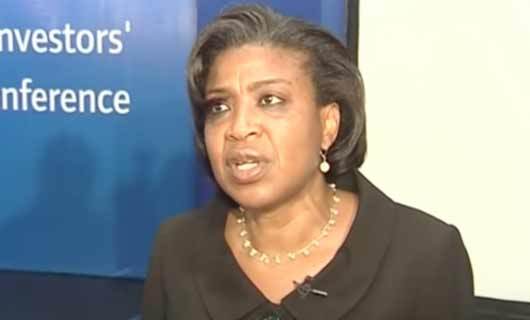
DMO Projects Nigeria’s Debt-to-GDP Ratio To 37.1% Increase In 2023
The Debt Management Office (DMO) has projected that Nigeria’s total public debt could rise to 37.1% of its gross domestic product (GDP) this year, nearing the government’s self-imposed 40% limit.
The government of the ex-president Mohammadu Buhari had raised the limit from 25 percent two years ago, ostensibly, to accommodate more borrowing.
DMO made the projection in 2022 Debt Sustainability Analysis (DSA) Report just released, linking the projected rise in the debt-to-GDP ratio from 23.4% in September to new borrowing and a Central Bank of Nigeria’s loan-to-bond swap.
The Federal Government aims to borrow N8.8 trillion in 2023 to cover its budget deficit, and has swapped temporary overdrafts worth N23 trillion into long-term bonds this year.
Moreover, the debt office estimates Nigeria’s debt service-to-GDP ratio will reach 73.5% in 2023, exceeding a government limit of 50% due to low revenue collection, adding however that the debt stock remains stable though the borrowing space has been reduced.
The DMO report stated: “The analysis of the results of 2022 Market Access Country-Debt Sustainability Analysis (MAC-DSA) shows that the Total Public Debt-to-GDP ratio is projected to increase to 37.1 percent in 2023 relative to 23.4 percent as at September 2022, due to the inclusion of the N8.80 trillion (new borrowings) for the year 2023, the FGN Ways and Means at CBN of over N23 trillion and estimated Promissory Notes issuance of N2.87 trillion in the debt stock under the Baseline Scenario.
“The country’s debt stock remains sustainable under these criteria, but the borrowing space has been reduced when compared to the Nigeria’s self-imposed debt limit of 40 percent set in the Medium-Term Debt Management Strategy (MTDS), 2020-2023.
“On the other hand, FGN Debt Service-to-Revenue ratio at 73.5 percent in 2023 exceeds the recommended threshold of 50 percent due to low revenue, which means that there is need to significantly increase government revenue.
“Under the Alternative Scenario, the Total Public Debt-to-GDP ratio at 45.4 percent in 2023 exceeds Nigeria’s self-imposed debt limit of 40 percent, while the FGN Debt Service-to-Revenue also exceeds the recommended threshold of 50 percent.”
Based on the analysis of the results, DMO, among others, recommended that, “Although the Baseline analysis projects Total Public Debt-to-GDP ratio at 37.1 percent for 2023 indicating a borrowing space of 2.9 percent (equivalent of about N14.66 trillion) when compared to the self-imposed limit of 40 percent, it is recommended that this should not be used as a basis for higher level of borrowing as was the case in the 2023 budget. This is because the outcome of the Shock Scenario, which is more realistic in the circumstances, exceeded the self-imposed limit.”
